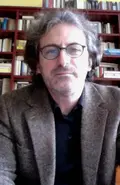The Challenge of Worldliness to Contemporary Christianity: Orthodox Christian Perspectives in Dialogue with Western Christianity
Duration
03/2021
- 02/2023
Funding
name on request
Project management

In the project, a distinction is made between the terms "worldliness" and "worldliness" of the church – the latter is understood rather negatively as a challenge for the church. Indeed, in these Christian traditions, different ways of thinking, orientations and practical attitudes towards the world have been articulated, which in many ways have become quite different in the course of history. For socio-historical reasons, for example, the challenge of worldliness has been greater in Western Christianity than in Orthodox Christianity, which has generally drawn the boundaries between church and world more clearly. All this has been a source of misunderstanding and mutual criticism between Christians in East and West.
The new project will first attempt to explore ways in which Orthodox perspectives can offer alternatives to the increasing worldliness in Western Christianity, which has in many cases transformed Christian witness into a purely worldly category. Conversely, the Orthodox can also benefit significantly from the more systematic tradition of worldly engagement in Western Christianity to mitigate their strong other-worldly tendencies. Ultimately, the scholars would like to contribute in a comparative perspective to a fruitful dialogue between the Christian churches in East and West on the necessary balance between affirmative worldliness and otherworldly orientations. Their project aims to provide nuanced analyses of such issues through a series of activities for academic as well as non-academic audiences, ranging from blogs, interviews and scholarly articles to teaching events, lectures and conferences.
